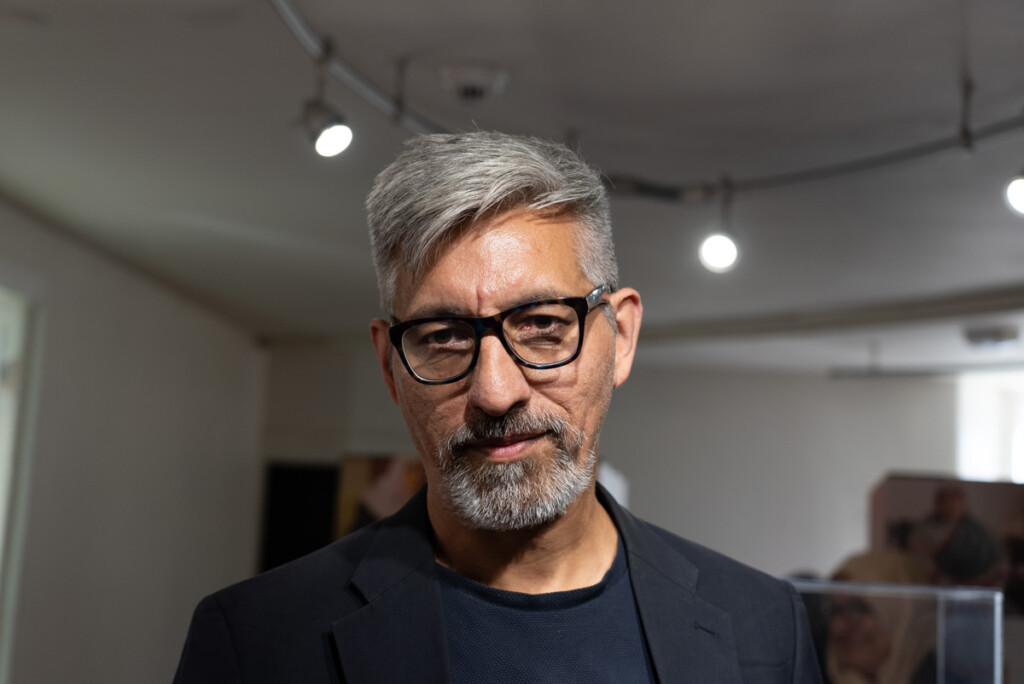Tape Letters Scotland opens at Museum of Edinburgh
When Pakistani families migrated to Scotland in the 1960s they adopted a novel form of communicating with their relatives at home – by recording messages on cassette tapes which were then posted back to Pakistan. And they awaited a reply by the same method either by post or dispatched with visitors returning to Scotland.
This is the subject of a new audio-visual exhibition at the Museum of Edinburgh which opens on Thursday. There are first hand interviews with those who can remember being involved – both in Pakistan and here in Scotland.
The tapes offered a cheaper alternative to making international telephone calls, and also provided a more accessible option for those unable to read or write letters. But the practice has since remained largely unknown to many, even within British-Pakistani communities, with many original tapes lost or later recorded over.
First launched in 2018, Tape Letters is a social archive project by Modus Arts, which aims to unearth, archive, and represent a portrait of this method of communication. A time when the telephone was communal, the tapes left room for intimacy in messages to loved ones. The exhibition also highlights the prominence of female voices.

Wajid Yaseen, Director of Modus Arts, said: “The Tape Letters project has turned out to be far more fruitful than I could have envisaged, and analysing the archive has felt akin to undertaking a sort of “sonic archaeology” – a deep dive into a wide range of fields and themes, including memory studies, linguistics, migration, discrimination, communication technologies, class and socio-economic dynamics, and many others. Although it has become a surprisingly complex social history project, it primarily demonstrates the deep and inherent need for people to communicate with each other in whatever way they can, wherever they’re originally from or wherever they find themselves in the world.”
Culture and Communities Convener, Cllr Val Walker said: “How fortunate we are to have Tape Letters at Museum of Edinburgh this winter.
“We live in such modern times, where everyone is an instant call away no matter where they are in the world. You can only imagine the excitement felt when a tape would arrive from family members, loved ones and friends and their voice and stories would be heard through the speakers.
“Tape Letters is a touching exhibition that can be appreciated by all members of our diverse community. I encourage everyone to take the time to visit, listen and reflect.”
Faria Khan, from Glasgow, who contributed to the archive, said: “Dad used to turn the cassette player on and test it and, you know, he’d bang on the mic saying “testing, testing”. It was just such an exciting thing preparing to record something! Like, what are we doing here? He’d then explain to us that it was a message for the family back home in Pakistan.”
Aqsa Mohammed, from Glasgow, also part of the exhibition, said: “My mum would listen to the tapes and tears would fall – she was always crying. Even when recording she would be crying. I’d get excited though. “Haan tape aayi!” [Alright! a tape has arrived!] It felt like a different feeling for us – a very emotional time. Emotional for her. Excitement for us.”
On 8 October, the National Library of Scotland will host a special public talk featuring Wajid Yaseen and Tape Letters Scotland Project Coordinator, Syma Ahmed, where audiences will be invited to hear first-hand from the project team about their work, and the importance of archiving and preserving migrant stories for present and future generations. Serving to both broaden access to the project, and preserve these unique historical accounts, Tape Letters Scotland is set to launch a WebXR-based digital exhibition and specialised App this October, followed by a Podcast series later this year.
Tape Letters Scotland Exhibition:
At Museum of Edinburgh, Royal Mile.
3 October 2024 – 23 February 2025